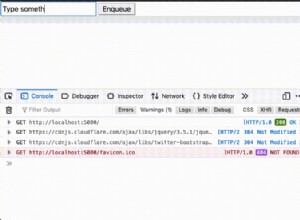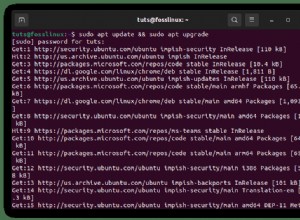आपके पास केवल 2 "USER2" हैं तो उस _id पर $sum 4 $last नहीं हो सकते हैं। यदि आपको उपयोगकर्ता में अनुक्रमणिका की आवश्यकता है तो लिखें _id का उपयोग करके देखें।
db.teste.aggregate([
{$group:{
_id: {user:"$user",last:"$last"},
total: {$sum:1},
last: {
$sum: {
$cond:[ {$eq: ["$last", user]}, 1, 0]
}
}
}}
])
यदि आपको विभिन्न क्षेत्रों में स्ट्रिंग या अन्य घटनाओं को जोड़ने की आवश्यकता है। प्रश्न है:
db.teste.aggregate([
{$group:{
_id: "$user"
}},
{$lookup:{
from: "teste",
let: { indice: "$_id" },
pipeline: [
{$group:{
_id: null,
user:{$sum:{$cond:[
{$eq:["$user", "$$indice"]}, 1, 0
]}},
last:{$sum:{$cond:[
{$eq:["$last", "$$indice"]}, 1, 0
]}}
}},
{$project:{
_id: 0
}}
],
as: "res"
}}
])
शून्य से नायक तक:
//First we'll extract only what we need find, on this case distinct users
db.teste.aggregate([
{$group:{
_id: "$user"
}}
])
//Here we will get the indexes of the search and reinsert in our filter using $let (nodejs var)
db.teste.aggregate([
{$group:{
_id: "$user"
}},
{$lookup:{
from: "teste",
let: { indice: "$_id" },
pipeline: [],
as: "res"
}}
])
//Let's counter the total of reinserted elements
db.teste.aggregate([
{$group:{
_id: "$user"
}},
{$lookup:{
from: "teste",
let: { indice: "$_id" },
pipeline: [
{$group:{
_id: null,
total:{$sum:1}
}}
],
as: "res"
}}
])
//Now let's test a true condition
db.teste.aggregate([
{$group:{
_id: "$user"
}},
{$lookup:{
from: "teste",
let: { indice: "$_id" },
pipeline: [
{$group:{
_id: null,
user:{$sum:{$cond:[
{$eq:[true, true]}, 1, 0
]}}
}}
],
as: "res"
}}
])
//cond tested let's extract what we want
db.teste.aggregate([
{$group:{
_id: "$user"
}},
{$lookup:{
from: "teste",
let: { indice: "$_id" },
pipeline: [
{$group:{
_id: null,
user:{$sum:{$cond:[
{$eq:["$user", "$$indice"]}, 1, 0
]}},
last:{$sum:{$cond:[
{$eq:["$last", "$$indice"]}, 1, 0
]}}
}}
],
as: "res"
}}
])
//Let's take the _id of the sub-colection because we do not need it
db.teste.aggregate([
{$group:{
_id: "$user"
}},
{$lookup:{
from: "teste",
let: { indice: "$_id" },
pipeline: [
{$group:{
_id: null,
user:{$sum:{$cond:[
{$eq:["$user", "$$indice"]}, 1, 0
]}},
last:{$sum:{$cond:[
{$eq:["$last", "$$indice"]}, 1, 0
]}}
}},
{$project:{
_id: 0
}}
],
as: "res"
}}
])




